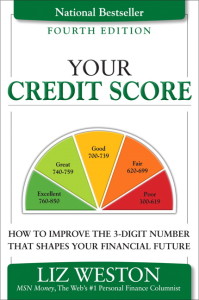Dear Liz: I need to refinance my home. My credit score has slipped a bit over the last year (still pretty good) and my wife has lost her job. I’m concerned that if we get denied, that will impact my credit score. Some have told me that inquiries from potential lenders can hurt the score but being denied doesn’t show up. What are the facts?
Answer: The credit scoring formula used by most mortgage lenders, the FICO, combines all mortgage-related inquiries made within a certain period and counts them as a single inquiry. (The period is generally 45 days.) Single inquiries typically knock less than 5 points off your scores. The scoring formula also ignores any inquiries made within the previous 30 days. That allows you to shop for a mortgage without unduly damaging your scores.
Being denied credit doesn’t knock any further points off your scores. Given your situation, though — lower income and lower scores — it would make sense to talk to a few lenders before submitting any applications so you’ll have a better idea of whether you’re wasting your time. Also, consider talking with a housing counselor approved by the Department of Housing and Urban Development. (You’ll find a link at http://www.hud.gov.) These counselors keep up with various refinancing programs and may be able to guide you to one that works in your situation.

